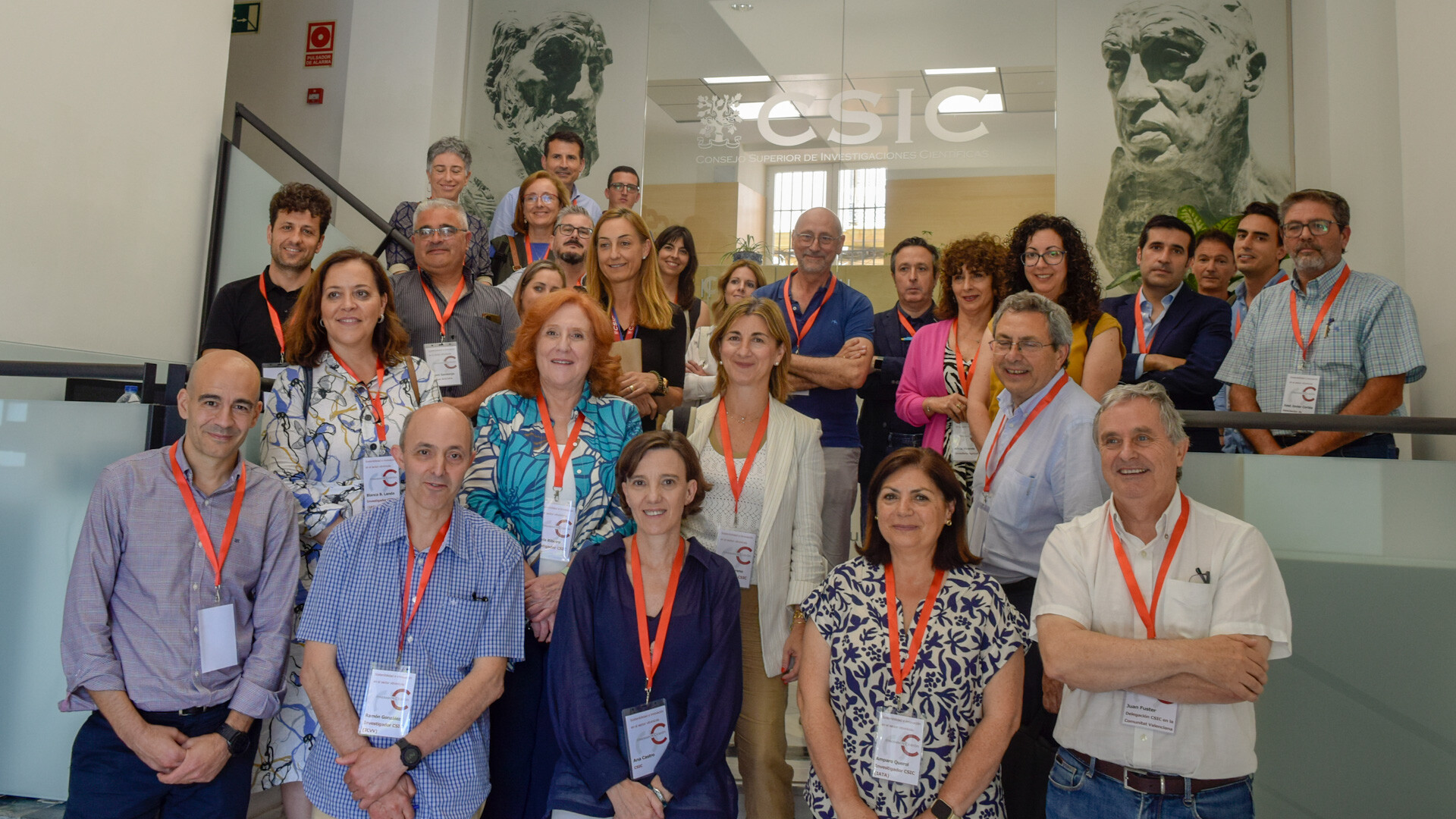Following events in Logroño and Madrid, a meeting on sustainability and innovation in the wine sector with representatives from appellations and wineries will conclude in Valencia. This initiative aims to promote the contribution of science to solve challenges such as the impact of climate change on wine production and a better use of resources
The Delegation of the Superior Council for Scientific Research (CSIC) in the Valencia Region, the Casa de la Ciència, today hosted the closing of a conference where thirty experts discussed sustainability and innovation in the wine sector. This initiative, one of the CSIC Cicero Itineraries organized by the Institute of Agrochemistry and Food Technology (IATA), located in the University of Valencia Science Park, provides a meeting point between research, public administrations and producers to enhance the contribution of science and innovation to solve challenges related to the production and sustainability of the wine industry.
The meeting brought together some thirty people from the fields of research, public policy, business and the media. The objective is to create a forum to assess and discern the improvement mechanisms that favor innovation in the wine sector, with the intention of responding to the challenges it is currently facing. It is part of the Cicero Itineraries, a program created by the CSIC with the support of its General Foundation where politicians, businessmen and journalists are invited to visit the institution and learn about the research it develops around a specific social challenge.
The people who have attended this meeting of the Itinerary have been able to learn about the unique facilities that IATA-CSIC has at its headquarters in the University of Valencia Science Park in Burjassot-Paterna, such as the Experimental Winery or the Biodegradability and Compostability Unit. They have also visited other areas of the Valencian research center of excellence where the staff that collaborates with the wine sector works. The visit was led by Amparo Querol, a researcher at IATA-CSIC who coordinates this Cicero Itinerary together with Ramón González, from the Institute of Vine and Wine Sciences (ICVV, CSIC-UR-GR).
Climate change in the wine sector
"The problem of climate change for the wine industry cannot be solved without working from all perspectives, from viticulture to enology. This Cicero Itinerary allows us to show it to the population, the industrial sector and political representatives," argues Amparo Querol.
Además de los recursos que el IATA-CSIC pone a disposición del sector, durante la visita se mostraron las líneas de investigación que desarrolla otro centro del CSIC en la Comunitat Valenciana, el Centro de Investigaciones sobre Desertificación (CIDE, CSIC-UV-GVA). “Participar en esta iniciativa es una gran oportunidad para dar a conocer nuestras investigaciones sobre viticultura y las aportaciones que hacemos a la conservación de los recursos suelo y agua. De este modo, ponemos en valor la contribución de la vitivinicultura a la sostenibilidad del medio rural y las importantes interacciones con los medios naturales que rodean los paisajes vitícolas mediterráneos”, explica su director, Diego Intrigliolo.
"The problem of climate change for the wine industry cannot be solved without working from all perspectives, from viticulture to enology. This Cicero Itinerary allows us to show it to the population, the industrial sector and political representatives", Amparo Querol researcher at IATA-CSIC
After the visit to the IATA-CSIC, the participants of the meeting moved to the CSIC headquarters in the Valencian Community, located in the central Casa de la Ciència in Valencia, where they were able to see a summary of the R&D developed by the CSIC in different areas related to sustainability and innovation in the wine sector. Afterwards, a debate took place in which the participants, including representatives of the Utiel-Requena and Valencia appellations of origin, as well as important wineries in the region and other agents in the sector, discussed possible collaborations.
Generate synergies
This Cicero Itinerary has had the participation of research staff from the Institute of Vine and Wine Sciences (ICVV); the Institute of Agrochemistry and Food Technology (IATA-CSIC); the Desertification Research Center (CIDE, CSIC-UV-GVA), the Institute of Sustainable Agriculture (IAS); the Institute of History (IH); the Institute for Research in Food Sciences (CIAL); and the Center for Automation and Robotics (CAR, UPM-CSIC). After the first session on May 17 in Logroño and the one held on June 3 in Madrid, the Cicerón Itinerary on Sustainability and Innovation in the wine sector concluded today in Valencia.
"In the different sessions we have seen two types of recipients. On the one hand, companies and institutions that already interact with our institution, with whom we strengthen ties and who discover other lines of work of the CSIC. And on the other, actors in the system who discover how they can interact with the Council. The format and the debate it generates has provided us with very enriching discussions that allow us to generate synergies between all parties" concludes Ramón González, ICVV researcher and one of the coordinators of this initiative.


